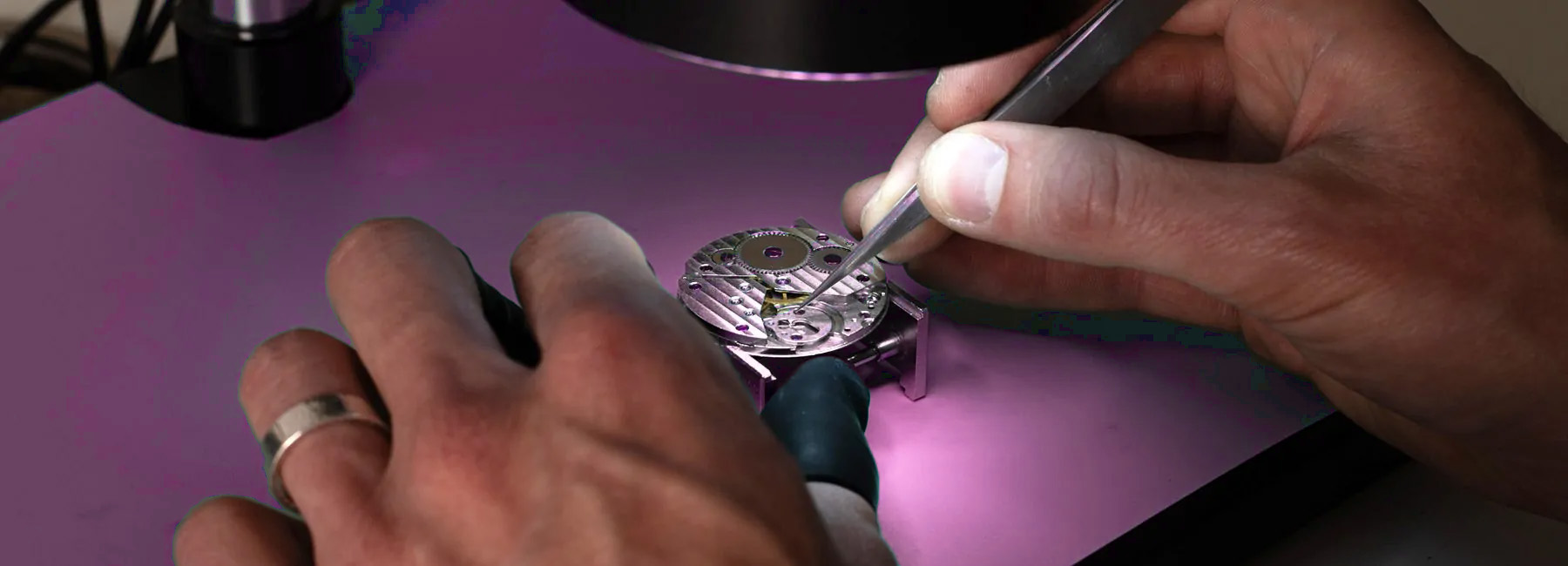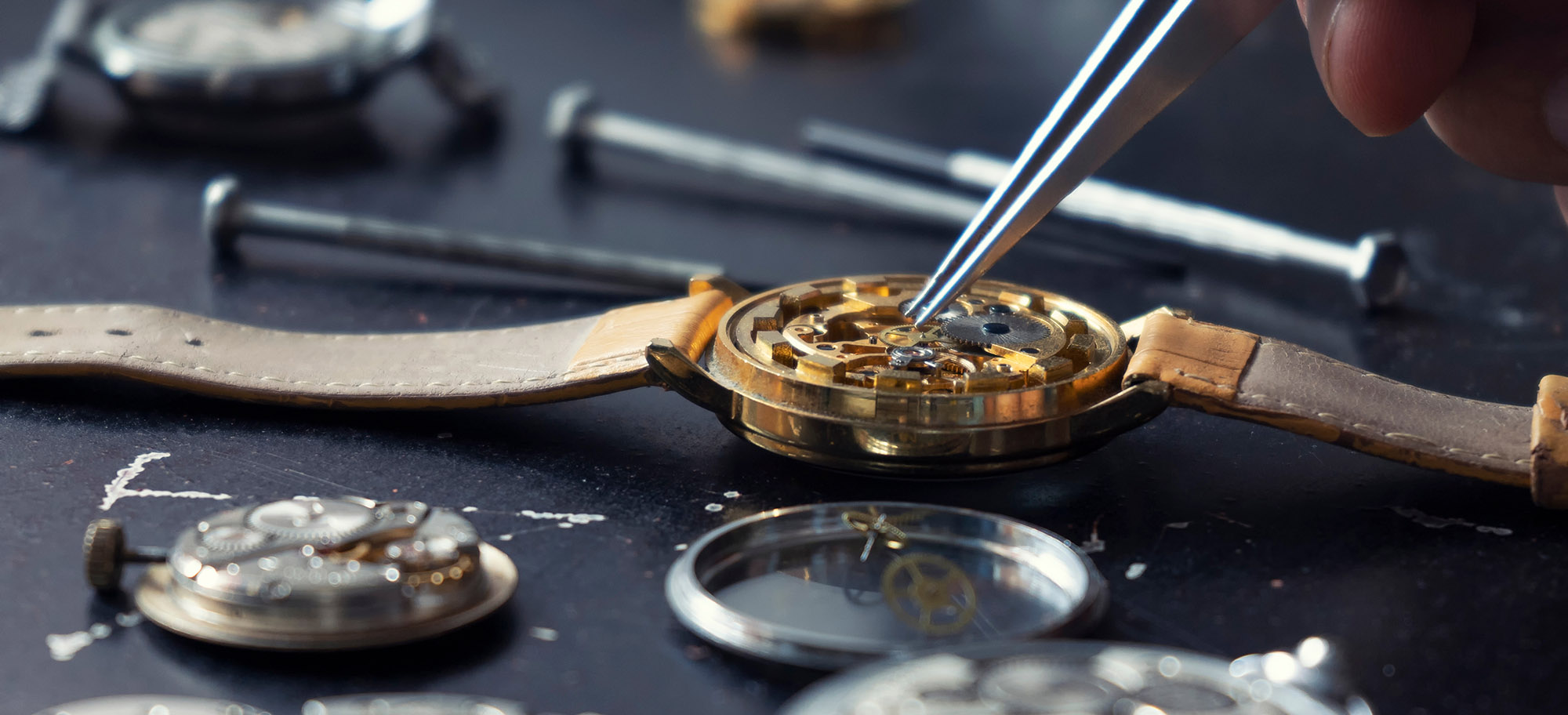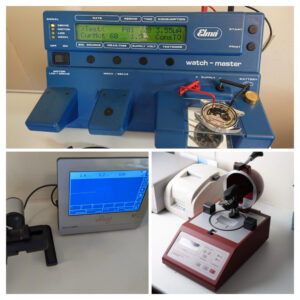
At W.E. Clark Watch Repairs, we offer more than just a watch service. We provide expert care supported by generations of experience, a commitment to excellence, and national recognition. If you’re looking for antique watch repair, pocket watch restoration, or luxury watch repairs, our team lead by master watchmaker Dan, is here to help.
Trusted Experts in Watch Repair
We specialise in all areas of watch repair, from servicing modern luxury watches to restoring treasured vintage pieces. Led by a master watchmaker and supported by a British Horological Institute (BHI) Accredited Watchmaker, our in-house team has worked on tens of thousands of timepieces. If you’re searching for a vintage watch specialist or an expert in watch repair, you’re in experienced hands.
Our team regularly works on a wide variety of watches, including quartz Omega Seamasters, heirloom pocket watches from the 1800s, and rare collector’s pieces. Each repair is handled with precision and care.
Why W.E. Clark Stands Out
Quality
Our standard of workmanship is exceptional. Our fully equipped workshop features advanced modern technology alongside traditional tools. We also operate a dedicated TAG Heuer Authorised Workshop with brand-specific equipment for precision work.
As Business Partners of the BHI, we uphold the highest standards in British horology. Our award-winning service reflects our focus on quality and attention to detail.
Experience
Few companies can match the depth of experience our master watchmakers bring. With decades of hands-on expertise, we carry out complex repairs with confidence. From luxury chronographs to antique pocket watches, we are the trusted name for expert watch repair.
Trust
We are a fourth-generation family business known for excellent customer care. We are proud to have received the Feefo Platinum Customer Service Award for five consecutive years. Our clients trust us with their most valued timepieces, and we treat each one with care and respect.
Convenience
We offer two bricks-and-mortar locations in Lewes and Uckfield, where you can drop off your watch and speak to a member of our team. For clients further afield, our fully insured freepost watch repair service provides a simple and secure solution. You request the packaging, send your watch to us, and we communicate with you by phone and email.
Watch Repair in Lewes and Across the UK
Although based in Lewes, our reputation as watch repair experts extends nationwide. Many clients choose us for our expertise in luxury watch repairs, pocket watch restoration and vintage timepieces. From routine servicing to detailed repairs, our team delivers outstanding results every time.
Ready to Repair Your Watch?
If you’re looking for a watch service that combines experience, trust, and convenience, we are here to help. Our watch repair experts are ready to restore your timepiece to its best. Get in touch today or use our fully insured FREEPOST service to begin your watch repair.
















